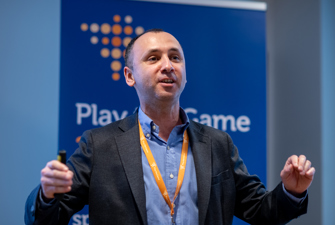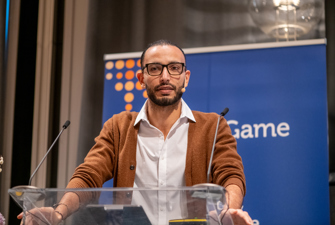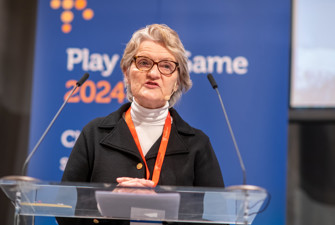Ukrainian deputy minister urges greater scrutiny of the neutrality of Russian athletes
Many Russian and Belarusian athletes will be allowed to participate as so-called 'neutral' competitors at the 2024 Paris Olympics. However, according to Ukraine’s deputy minister of youth and sports Andriy Chesnokov, their professed impartiality is often a mask of convenience, and the Ukranian government has compiled a database over athletes whom they believe are not neutral.
Following Russia’s 2022 invasion of Ukraine, the IOC banned both Russian and Belarusian athletes from international competitions. While applauding this decision, Chesnokov argued in a keynote speech at the opening of Play the Game 2024 that a subsequent ruling that allowed so-called Individual Neutral Athletes (AINs) to participate in the 2024 Paris Olympics diluted the original message.
Furthermore, he told Play the Game 2024 that many of the athletes who are planning to compete in Paris this summer are active supporters of Russia’s invasion.
“You can’t be a neutral and be chosen for the Olympics,” Chesnokov said.
According to the IOC, Russian or Belarusian athletes who actively support the war or who are contracted to the military or security services will not be welcome in Paris. However, Chesnokov said, no detailed compliance criteria exist that fully define the concept of neutrality. This leaves the question of inclusion open to interpretation by international sports federations, who are charged with making the final decision.
Pro-Russian bias in certain sports
In certain sports, he said, pro-Russian bias appears to be more blatant than others. Prominent among them are combat sports such as wrestling, judo and taekwondo, whose international federations have, according to Chesnokov, turned a blind eye to active members of Russian’s armed forces participating in competition.
As a response, Ukraine’s government has compiled a database of Russian and Belarusian athletes in over fifty disciplines who, it says, have expressed support for Russia. The database alleges evidence ranging from liking pro-war social media posts to active service in the Russian army. Not all those listed in the database are hoping to compete in Paris 2024.
While he respected the independence of the international federations, Chesnokov added that their autonomy should not be open to abuse. As an alternative, he said, an independent body with no connection to the sports federations should be tasked with the evaluation of athletes’ neutrality. In the future, he suggested, a legally binding convention could also be considered.
Chesnokov said that he had little doubt the war would still be in progress when the opening ceremony of the Paris Olympics begins. In such circumstances, he said, the presence of pro-Russian athletes and their supporters would be a serious concern.
“The IOC has stated that the participation and non-discrimination rights of athletes are not absolute,” he said. “In such cases, safety concerns should take precedent over inclusion principles.“







